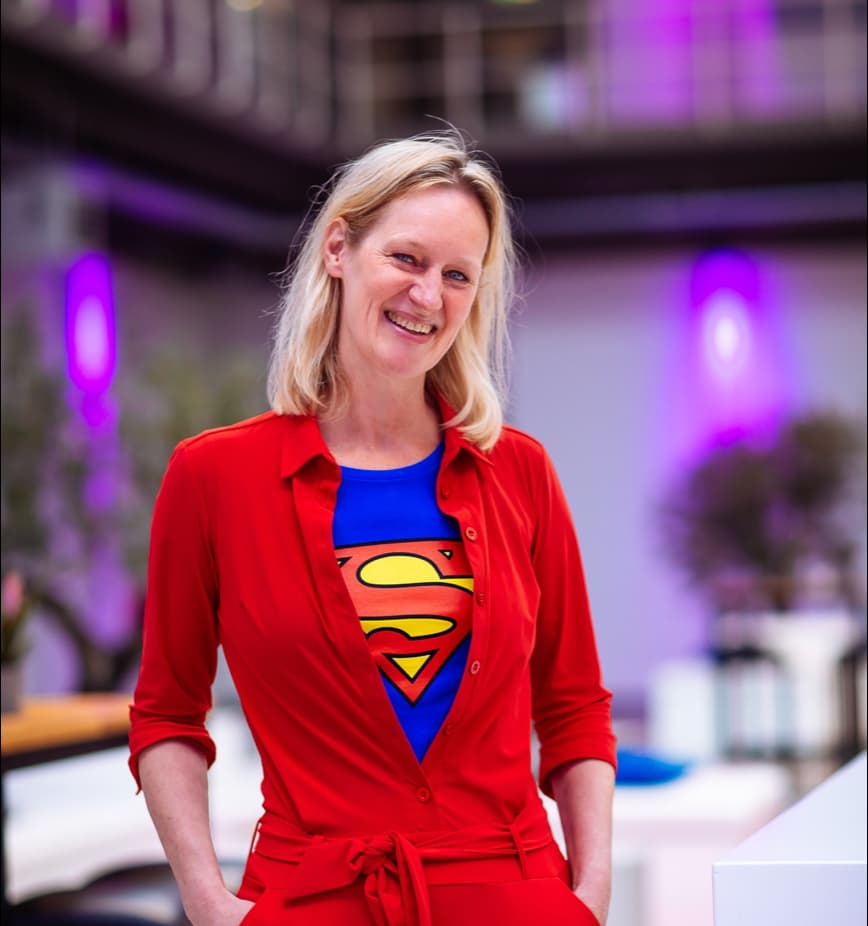
Implementing change in an organisation is difficult. Yet there is an approach that guarantees success, writes innovation expert Simone van Neerven: the six-step algorithm of office expert and columnist Japke-d. Bouma. “Just take a break from meetings for a while and see what happens.”
Better than Elon Musk
The majority of all change initiatives fail due to reasons such as the reasons for change being unclear, there is poor communication, and people don’t have time for it. The employee’s work often does not improve, so why should they collaborate?
But there is an approach that does lead to success. Just like Elon Musk, Dutch columnist Japke-d. Bouma has an algorithm that helps you to implement change in your organisation successfully. Bouma writes weekly hilarious columns about work, career and (office) language for the Dutch newspaper NRC.
Here are the six steps of that algorithm:
Step 1: Keep it short or just stop with all those meetings
Global research by Microsoft shows that 69 per cent of employees do not find meetings productive. Joe Biden’s inauguration lasted just half an hour, including performances by Jennifer Lopez, Amanda Gorman and Lady Gaga, so a work meeting should take thirteen minutes or even less. Just keep it short, or try to take a break from all meetings and see what happens. Probably nothing at all.
Step 2: Stop using 'itchy words'
Itchy words are incomprehensible words such as soundboarding (you mean discussing), putting something on the backburner (stop working on the thing), or boiling the ocean (you want too much). People use itchy words mainly because they do not truly understand what they are talking about, and it is damn difficult to explain things easily. Itchy words cause a lot of irritation and confusion. People don’t know what is expected from them, and they become so annoyed that they complain about it for hours to their colleagues. Stop using itchy words will save hours a day.
Step 3: Get rid of all the jobs that no one understands
Environment manager, cluster coordinator, theme leader, or culture guardian. No one has a clue what the heck this means, let alone what these people do all day. That also applies to all kinds of groups that take up loads of time but rarely lead to anything useful. So, no more focus groups, steering groups, sounding board groups, task groups, monitoring groups or working groups. And don’t worry, because at the office there is already a place from where everything is perfectly controlled, feedbacked, sounding board and monitored: the coffee machine.
Step 4: Avoid meaningless inspirational quotes
‘If you don’t know where you are currently standing, you’re dead.’ No, you’re not. You are just lost. These types of statements take away all motivation from the organisation. People start thinking about it, become confused and get stuck. So stop with this nonsense immediately.
Step 5: Don't beat about the bush
Just tell it like it is. If someone comes to you with a suggestion, don’t say: ‘Great thinking’, ‘We’ll take it into account’ or ‘Thanks for the signal’. (What do you mean, what signal? People are not foghorns.) Just say: ‘Nice idea, but we won’t do it anyway.’ And if a colleague is annoying because he is printing 800 emails or not washing his cup, say something about it. Because if you bite the bullet now, you might be able to clear the air before things get nasty.
Step 6: Bring back the knick-knacks
Today’s offices are more like a prison where you can only leave when your work is done. They have the impersonal appearance of an aeroplane toilet. Make sure people enjoy being at work again. Offer good coffee and ensure parking spaces for everyone. Set up ice cream carts, baristas, chocolate fountains and champagne towers. Anything goes!
And come on, give everyone their own desk again. No more open offices because those are like mega-farms. People feel rushed, are interrupted all the time and therefore no longer start working on complex – and often the most important – things.
Okay, go do something now!
Once you have taken all these steps, you have cleared the way to start working on the major changes. But are these still necessary? Ask yourself that question first before rushing into something stupid.
Now that you have saved half or more of your employees’ time, people can use this more productively. Like letting people nap, wander around and stare aimlessly into space, or take the dog for a walk. That will stimulate creativity, and good ideas to improve work will naturally emerge. Also, organise more parties and do fun things together. It creates a nice atmosphere in the team, and this is where the best ideas will be born. And last but not least, take the work but not yourself so super seriously.
Apply this Japke-d. Bouma’s approach and success are guaranteed!
This article was originally published in Dutch on MT/Sprout, the most popular business and management platform in the Netherlands.
don’t miss out!
get my columns straight into your mailbox:


